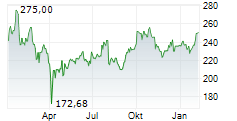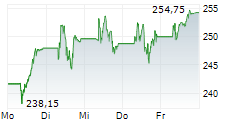
The first report explores scenarios of AI's electricity consumption over the next decade, while the second report demonstrates how AI-powered HVAC systems can improve energy efficiencyThe research was published during IEA's global conference, where the company is in attendance
Rueil-Malmaison, France, Dec. 05, 2024, the leader in the digital transformation of energy management and automation, today released two reports from its Sustainability Research Institute. These reports fill key knowledge gaps regarding AI's impact on sustainability, particularly in energy use.
The first research, Artificial Intelligence and Electricity: A System Dynamics Approach, examines four possible scenarios for AI's electricity consumption over the next decade. Considering the growing concern around AI's energy consumption, Rémi Paccou, Director of Schneider Electric's Sustainability Research Institute, and Prof. Fons Wijnhoven, Associate Professor at the University of Twente (Netherlands), have built a system dynamics model that forecasts diverse scenarios for AI electricity demand, highlighting the path forward for sustainable AI development strategies and policies to mitigate environmental impacts.
The authors construct four scenarios of AI development and their associated impacts on electricity consumption. These scenarios, which are not predictions but rather tools to understand the complex factors shaping our future, span a range of possibilities: from Sustainable AI development to Limits to Growth, including more radical scenarios such as Abundance Without Boundaries and even the possibility of Energy Crises caused by AI. Alongside these forecasts and analysis, the report also contains recommendations for policymakers and decision-makers, contributing to a thoughtful and responsible approach to development, aiming for a path that balances progress with sustainability.
The second report,AI-Powered HVAC in Educational Buildings: A Net Digital Impact Use Case, also by Rémi Paccouand Gauthier Roussilhe, Research Fellow and Doctoral Student at RMIT, demonstrates how AI-powered heating, ventilation, and air-conditioning (HVAC) systems can enhance energy efficiency and environmental conservation in buildings. HVAC systems account for 35 - 65% of total building energy consumption. The study examined over 87 educational properties in Stockholm, Sweden, over an extended period under real-world conditions. Between 2019 and 2023, the study observed a total carbon emission reduction of 65tCO2e/y, roughly 60 times the actual embodied carbon footprint of the AI system deployed.
The research reveals opportunities for even greater carbon reductions in environments with more demanding heating, cooling, or air conditioning requirements. A comparative analysis between Stockholm and Boston showed that implementing the same solution in Boston could yield carbon emission savings seven times higher than in Stockholm.
The publishing of these reports coincides with the IEA's Global Conference on Energy & AI, where Schneider Electric is in attendance. This conference gathers experts from the energy and tech sectors, government, civil society, and academia to discuss the potential impacts of AI on global energy systems and the opportunities for leveraging AI for energy and climate goals. Schneider Electric's CEO, Olivier Blum, and Executive Vice President of its Data Centers & Networks Business, Pankaj Sharma, will participate in a high-level roundtable later today.
"The release of our reports comes at a crucial time, as the IEA conference highlights the transformative power of AI in the energy sector. As a company and as researchers, we are committed to keep shaping the future of energy and climate solutions", stated Vincent Petit, Climate and Energy Transition Research SVP at Schneider Electric.
Schneider Electric Media Relations - global.pr@se.com
Attachment
- Schneider Electric's new research forecasts AI's impact on energy consumption.pdf (https://ml-eu.globenewswire.com/Resource/Download/0c70216d-abe5-4a0e-9c52-7f34de8e9075)




